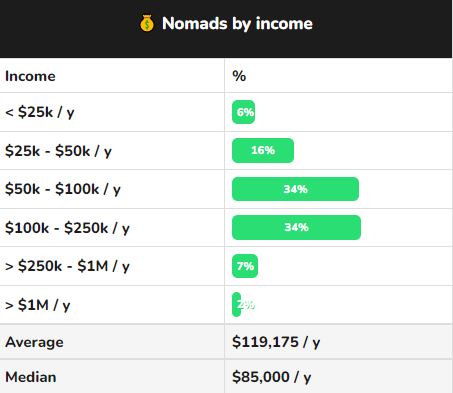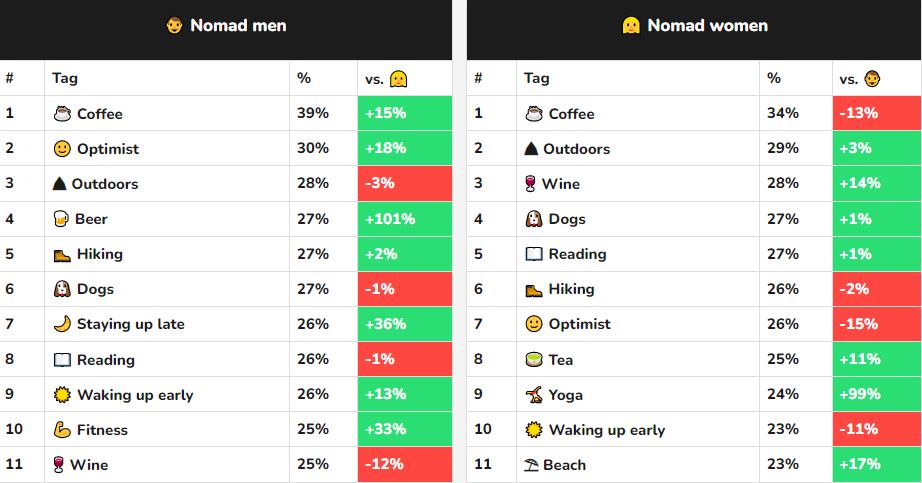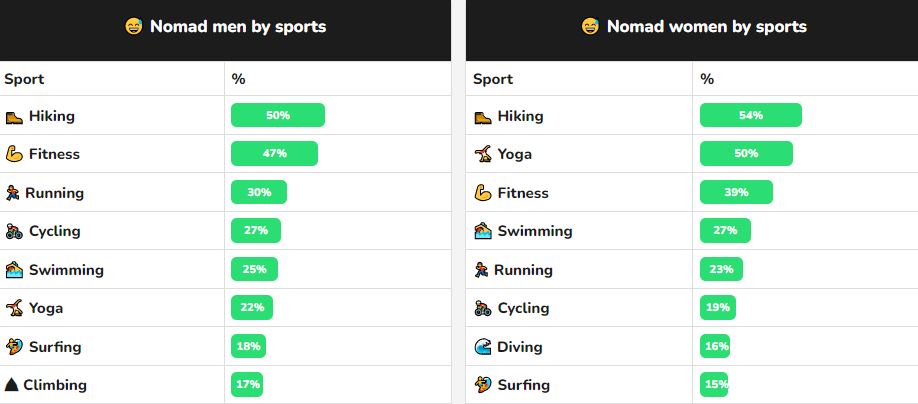July 3, 2022 - Croatia is establishing itself as a leading remote work destination. The latest NomadList 2022 survey gives some clues as to why.
It is peak season in Croatia, and most of the country's tourism is focused on the traditional sun and sea tourism on the Adriatic. But away from the coast, and away from the beach, a newer, more sustainable tourism is taking route in a country that desperately needs to diversify its tourism strategy away from overtourism in the summer months on the beach.
It is about three years since I wrote an editorial called Branding Croatia for the Future: 5 Gifts and Trends to Focus On. For a country so reliant on one form of tourism, I was shocked at how much untapped potential Croatian tourism had all over the country, 365 days a year. Three years later, thanks largely to efforts in the private sector that were embraced by the public sector and - belatedly - by the official tourism board, one of those five gifts and trends is being not only realised, but showing outstanding potential to move Croatia into a new and exciting direction - digital nomad tourism. And I am sure that the other four gifts will find their moment in the sun at some point.
This week's NomadList 2022 survey gives some great insights into the digital nomad lifestyle, as well as showing just how well-positioned Croatia is to develop itself in this rapidly-expanding tourism niche. Finding reliable data about digital nomads is notoriously difficult, as they do not register as such when they travel, so it is hard to capture the data. The NomadList data is captured through its paying members and their actual movements, and is therefore one of the few good indicators available of trends within the digital nomad community. And for those willing to spend more than 10 minutes looking at the headlines, there are some rather interesting findings, most of which are very good news for Croatia.
Before looking at what is attracting nomads to Croatia, it is worth reflecting on some of the data in the survey to dispel a few myths and also to see how Croatia's approach to the visa - or permit - reflected the needs of the nomads it was intended to serve. I remember at the time that there was a lot of criticism of Croatia's requirement to have an income in the region of 25,000 euro a year in order to qualify for the permit, as this would disqualify many applicants based on income. I personally thought this figure was about right - the whole point in creating this opportunity was to bring in people who would be spending.
And it seems that the vast majority of nomads would have no problem meeting this requirement, with 77% of nomads earning more than $50,000 a year, and the average salary just under $120,000. That is some very nice purchasing power for visitors coming for an xtended period to a country.
Another criticism after the permit was introduced was how few nomads actually applied for it. I must admit I was expecting significantly more than did apply, but again the data is a good guide. With only 15% of nomads staying more than 3 months in a country, the number of applications for a whole year is necessarily going to be low. And with 82% spending between a week and 3 months, most don't need to apply for any additional permits other than any normal entry visa.
High net worth individuals spending around two months in a country on average - and not necessarily in the summer on the beach - is a niche to be cultivated. So what makes nomads tick, and does Croatia have anything to offer them? Oh yes... indeed, it almost seems as if the spec was written with Croatia in mind. The big concept I took from this survey was the search for lifestyle.
Here is how male and female nomads describe themselves by interests. Do you think any of these might fit into the Croatian lifestyle?
Top of the list for both male and female nomads is the epicentre of Croatian culture - coffee.
I have never lived in a country where the coffee culture was so culturally engrained into society as in Croatia, and I constantly marvel at how my Croatian colleagues can make an espresso last an hour as I sink four beers in the same time. Comparing life in a Starbucks in the States to the relaxed cafe culture in Croatia has to be one of the great cultural divides, and I have lost count of the number of American nomads who wonder at the beauty and friendliness of the Croatian coffee scene, where new friendships are made daily over a cup.
Also rating very highly are two of Croatia's great natural strengths - hiking and the outdoors. With over 10% of the entire country given over to national and nature parks, Croatia's attractiveness as a great outdoor destination is without question. Outstanding hiking opportunities such as Sljeme in Zagreb, Marjan in Split and Stari Grad Paklenica by Zadar are all very accessible from popular nomad cities, while the many parks of Zagreb are also very popular.
Beer and Wine. Welcome to Croatia, the birthplace of Zinfandel, one of 130 indigenous varieties in an increasingly homogenous world. And for a country with a better emerging craft beer (and gin) scene, one would have to search a little. Many of Croatia's wine experiences are authentic and unique, small family growers only now discovering international markets. They are a joy to discover.
One of the other gifts and trends to work on from that editorial three years ago was Croatia's potential as a sporting tourism destination. And looking at what gets nomads active, it seems to be a match made in heaven. Croatia has outstanding options in almost all of these sporting activities. It almost feels that Croatia is a country designed by a digital nomad wishlist.
Add to all this, of course, the many other attractive aspects of Croatia's offer - its safety, excellent English, great WiFi, affordability, accessibility, culture, natural beauty - and no wonder that Croatia is starting to figure more prominently as a remote work hot spot in Europe. And let's not forget the huge potential of Croatia's excellent medical tourism industry (yes, also one of the five gifts in that 2019 editorial). If remote workers realised the quality and price of dentistry, cosmetic surgery, eye surgery, and a host of other medical procedures, they could build that into their Croatian experience, saving lots of dollars and discovering yet one more reason why the future of sustainable tourism away from the beach in Croatia is looking brighter than ever before.
Learn more in Medical Tourism, the Hidden Gem in Croatia's Remote Work Revolution.
For more news and features about digital nomads in Croatia, follow the dedicated TCN section.






